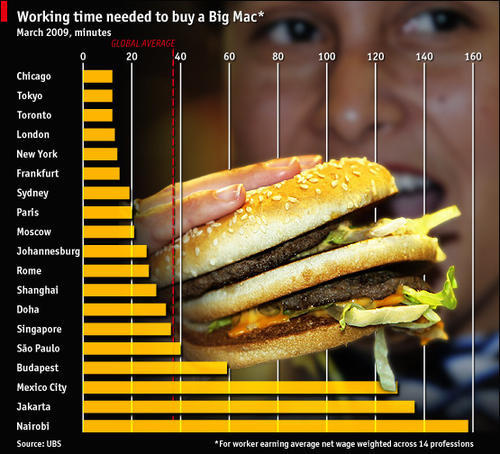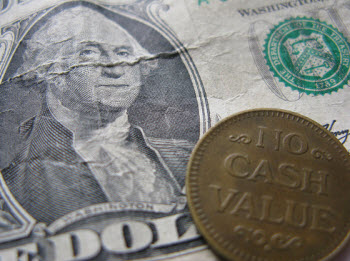Sure, McDonald’s operates all over the world now, but that doesn’t mean that everyone can afford their products easily. As proof, The Economist has spent years updating its Big Mac Index, which uses the local price of the McD delicacy to estimate the purchasing power of consumers in about 120 countries. Recently, UBS cooked up its own twist on the index, calculating how many minutes the average person would need to work at their job in order to earn that precious, precious Big Mac. Predictably, a worker in Nairobi must work the longest—over two hours—while a worker in Chicago would only need to work 12 minutes.
purchasing power

'99 Cents Only' Store Chain Considers Raising Prices, Changing Sign To '99 Cents, Orly?'
[It is] definitely on the table. That is something we’re looking at . . . in the future for us. We’re looking at doing some experiments. Obviously one way [is that] you can start selling things for $1.05, $1.09, $1.15 and other ways. You could have more of a break between your 99 cents price point and the next price point.”



